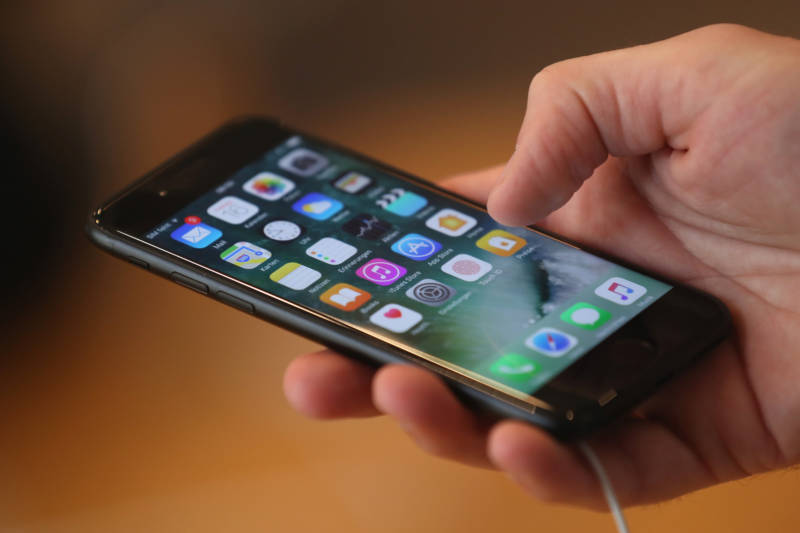"We strongly disagree with the judge's conclusions, her interpretation of the facts and her application of the law," Qualcomm general counsel Don Rosenberg said in a statement.
Qualcomm said it will appeal the decision, suggesting the case could still take a few years to resolve. Swift said that means there will likely be no big price drops overnight.
If and when the decision goes into effect, it's not clear what company could immediately step in to compete against Qualcomm in the smartphone chip market, especially in the 5G space.
Apple and Qualcomm Settle
Last month, a separate lawsuit over some of the technology that enables iPhones to connect to the internet was settled between Apple and Qualcomm — with Apple agreeing to pay Qualcomm an undisclosed amount and to continue buying Qualcomm's chips.
The settlement "took the air out of the room for other chipmakers," said Swift, because of the market share that iPhones enjoy.
For the last few years, Intel had been providing 3G and 4G chips to Apple, but immediately after the settlement announced it would not enter the 5G market — leaving just Qualcomm in the burgeoning 5G space.
After Tuesday's antitrust decision, Swift spoke with Intel, but said the company would not comment on whether it will change its decision regarding making 5G chips. Swift said that other companies that could potentially compete with Qualcomm include Samsung, MediaTek and a few large China-based companies, such as Huawei.

